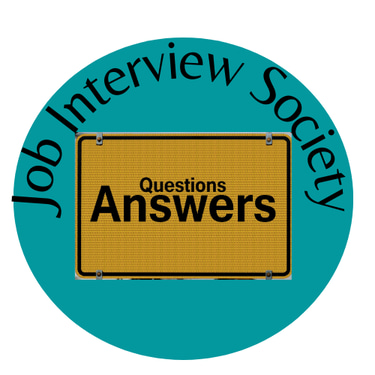How to Answer 'What Motivates You?' in Interviews
Discover effective strategies for answering the interview question 'What motivates you?' and impress your potential employer. Learn how to articulate your motivations and stand out in your job interview.
COMMON INTERVIEW QUESTIONS
12/1/20244 min read


Understanding the Question
The interview question "What motivates you?" serves as a critical tool for employers seeking to understand candidates on a deeper level. It goes beyond surface qualifications and delves into the individual’s core values, drive, and aspirations. Employers are interested in uncovering what fundamentally inspires and energizes a candidate, providing insight into their potential fit within the role and the broader company culture.
When posed with this question, interviewers aim to assess the alignment between the candidate's motivations and the expectations of the job in question. For instance, a candidate motivated by teamwork and collaboration may be a strong fit for roles that emphasize group projects and joint problem-solving. Conversely, an individual who thrives on challenges and independent problem-solving may excel in positions that require autonomy and innovation. Thus, a candidate's response can significantly influence an employer's perception of how well they might adapt to the team's dynamics and the organization's goals.
Identifying Your Personal Motivations
Understanding your personal motivations is crucial for successfully answering the interview question, "What motivates you?" This process begins with a thorough examination of your past experiences and achievements, as these elements often reveal patterns that highlight what drives you. Reflecting on moments when you felt most fulfilled, whether in personal or professional endeavors, can provide valuable insights into your intrinsic and extrinsic motivations.
Intrinsic motivations refer to inner drives that propel you towards activities or goals that you find inherently satisfying. For example, if you derive pleasure from problem-solving or creativity, these could be strong indicators of your intrinsic motivation. In contrast, extrinsic motivations stem from external factors such as rewards, recognition, and social approval. Acknowledging that both types of motivation can coexist in different aspects of your life is important, as they contribute to a well-rounded understanding of what propels you forward.
To effectively identify your motivations, consider conducting a self-reflection exercise. Begin by writing down your top achievements and successes, categorizing them into intrinsic and extrinsic motivations. This visual arrangement can help clarify what aspects of your life bring you joy and satisfaction. Additionally, engaging in discussions with peers or mentors can also provide perspective; sometimes, others can recognize motivations in you that you might overlook.
Another practical strategy is to maintain a motivation journal. Documenting daily experiences that inspire or excite you can enhance your understanding of your motivational landscape over time. As you record your feelings and reactions to various situations, patterns may emerge that elucidate your driving forces. This ongoing self-assessment will not only prepare you for the interview question but also lead to greater self-awareness in your career and personal pursuits.
Crafting Your Response
When preparing for the interview question "What motivates you?", it is essential to construct a compelling response that resonates with the interviewer. A structured approach, such as the STAR method—Situation, Task, Action, Result—can enhance the effectiveness of your answer. Begin by identifying a specific situation that highlights your motivation. This could include a project you were passionate about, a challenge you faced, or an environment that inspires you. Clearly define the task you undertook in that scenario, detailing your objectives and the challenges presented.
The next step is to outline the actions you took to achieve those objectives. This may involve explaining how your motivation led to innovative solutions or improvements in performance. Emphasizing your proactive approach will make a lasting impression on the interviewer. Finally, highlight the results achieved as a consequence of your motivated actions. Quantifying these outcomes can significantly bolster your response, illustrating the tangible benefits of your intrinsic motivation.
To tailor your response effectively, consider the specific role and industry you are applying for. Researching the company culture and values can provide insight into what motivates successful employees in that environment. For instance, if the organization values teamwork, you might want to emphasize your motivation to collaborate and achieve collective goals. Alternatively, if the job role focuses on innovation, discuss your drive for creativity and continual improvement.
In addition, prepare multiple variations of your response for different roles within the same industry. This adaptability ensures that your answer remains relevant, showcasing your enthusiasm for the specific position. Constructing a well-rounded, tailored response will not only demonstrate your self-awareness but also illustrate your alignment with the prospective employer’s values and objectives, ultimately enhancing your chances of success in the interview process.
Examples of Strong Motivations
During job interviews, articulating strong motivations can distinguish candidates and effectively demonstrate their suitability for a role. One potent example is the desire for professional growth. Candidates who emphasize their commitment to continuous learning are often viewed favorably. Stating that they seek opportunities for skill development and advancement not only illustrates ambition but also aligns well with organizations that prioritize employee development.
Another impactful motivation is teamwork. Candidates can frame their motivation around the enjoyment of collaborating with others to achieve common goals. By sharing experiences of successful team projects, they can highlight their ability to contribute positively to a collaborative environment. This motivation resonates well, particularly in roles that require cross-functional cooperation or where strong interpersonal skills are essential.
Innovation serves as a strong motivator for many professionals. Candidates can express their enthusiasm for working on groundbreaking ideas or solutions. They can share anecdotes demonstrating their creativity, such as instances when they proposed new methods or products that benefited their former employers. Such a motivation presents the candidate as proactive and forward-thinking, traits that many companies highly value.
Furthermore, a motivation to achieve specific goals can significantly resonate during the interview process. By discussing personal objectives—whether related to project completion, sales targets, or personal development—candidates show their drive and determination. Framing these goals in conjunction with the company’s objectives illustrates alignment with the prospective employer's mission.
Lastly, making a difference in the community can be an admirable motivation. Candidates can share their involvement in community service or initiatives that underscore their commitment to social responsibility. By linking this motivation to the company’s values, candidates can effectively demonstrate their potential as aligned and dedicated employees.
